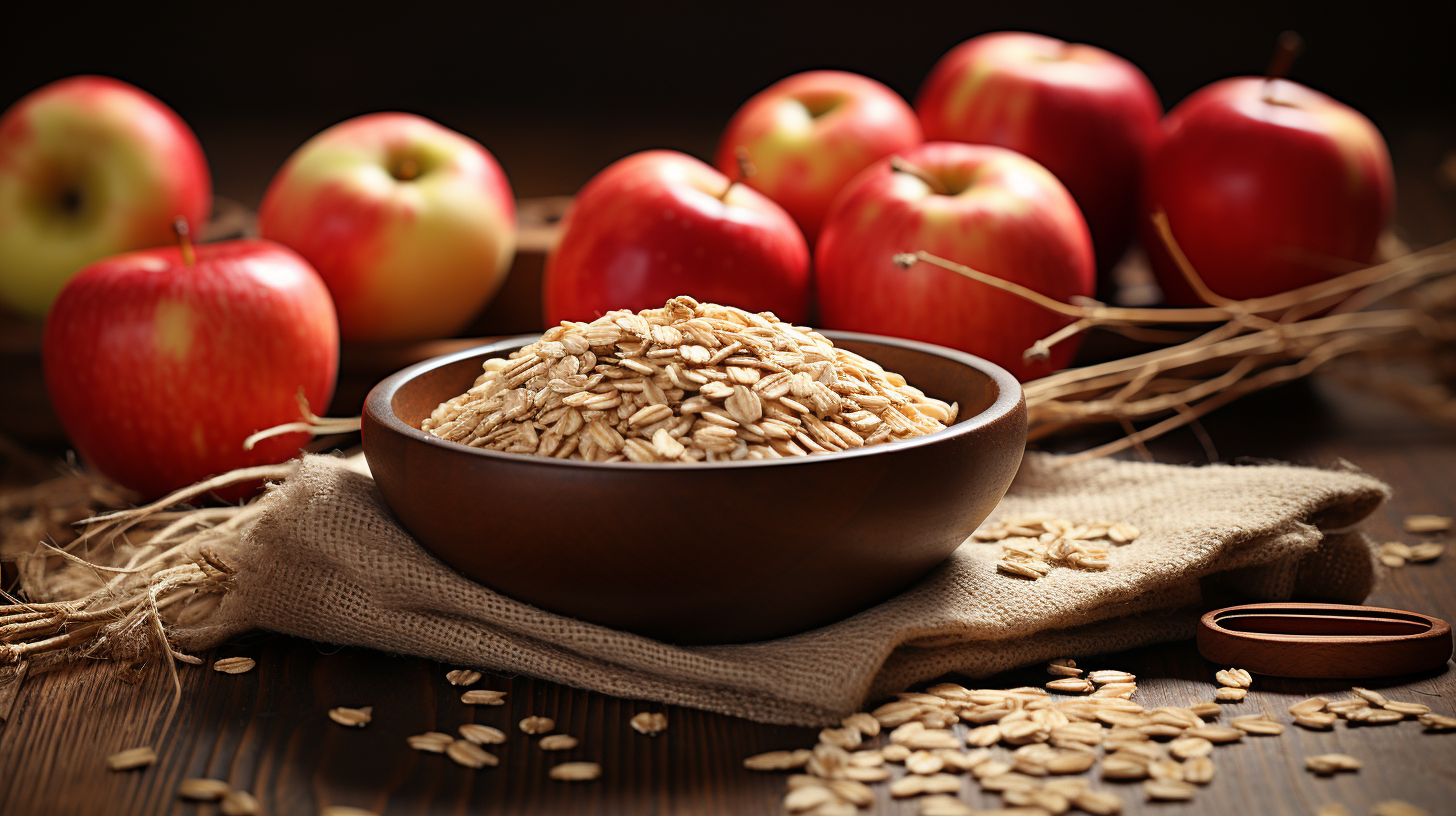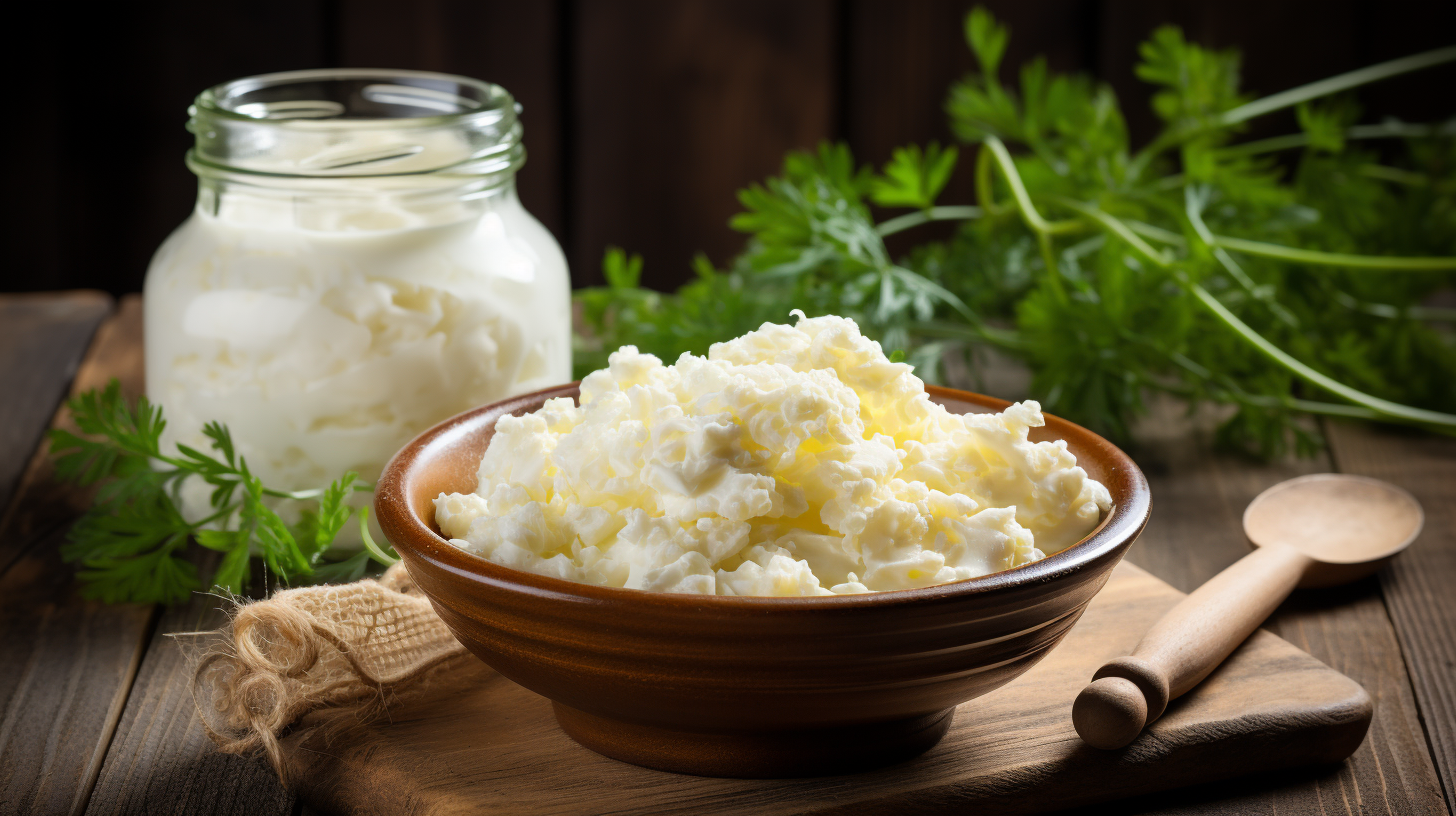Are you a woman over 40 struggling with digestive issues? Bloating, constipation, acid reflux, and irritable bowel syndrome can significantly impact your daily life and well-being. But what if there were natural remedies that could alleviate these common digestive problems? In this article, we will explore gentle and effective solutions to promote gut health and ease discomfort.
Key Takeaways:
- Digestive issues like bloating, constipation, and acid reflux are common in women over 40 and can often be relieved by natural remedies.
- Hormonal changes, diet, stress, medications, and physical inactivity are key factors affecting digestive health in this demographic.
- Incorporating probiotics, high-fiber foods, herbal teas, and relaxation practices into daily life can significantly improve digestion.
- Making dietary changes, such as avoiding trigger foods, and lifestyle modifications, such as engaging in regular exercise, are essential for managing acid reflux and IBS symptoms.
- Keeping a food and symptom journal can help identify digestive triggers and inform necessary dietary adjustments for better gut health.

Understanding Digestive Issues in Women Over 40
As women age, they may experience various digestive issues that can disrupt their daily lives. Common problems include bloating, constipation, acid reflux, indigestion, and irritable bowel syndrome (IBS). These issues can have multiple causes, including hormonal changes, stress, poor diet, and a sedentary lifestyle.
Fortunately, there are natural remedies and home remedies for digestive problems that can offer relief from these uncomfortable symptoms. By addressing the underlying factors and implementing gentle yet effective solutions, women can improve their digestive health and regain their comfort and well-being.
Factors Contributing to Digestive Issues
Several factors can contribute to digestive problems in women over 40. These include:
- Hormonal changes: As women age, hormonal fluctuations can impact digestion and lead to issues like bloating, constipation, and IBS.
- Poor diet: Unhealthy eating habits, such as a diet high in processed foods, refined sugars, and saturated fats, can disrupt digestive processes.
- Stress: Chronic stress can negatively affect digestion by suppressing the production of digestive enzymes and causing imbalances in gut bacteria.
- Medications: Certain medications, such as painkillers, antibiotics, and hormonal treatments, can disrupt the natural balance of gut flora and cause digestive problems.
- Sedentary lifestyle: Lack of physical activity can slow down digestion and contribute to issues like constipation and bloating.
Natural Remedies for Digestive Issues
When it comes to managing digestive problems, natural remedies can provide gentle and effective relief. These remedies focus on improving gut health and addressing the underlying causes of digestive issues. Some common natural remedies for digestive problems include:
- Probiotics: These beneficial bacteria can help restore the balance of gut flora, improve digestion, and alleviate symptoms of bloating, constipation, and IBS.
- Dietary changes: Incorporating fiber-rich foods, such as fruits, vegetables, whole grains, and legumes, into the diet can promote regular bowel movements and prevent constipation.
- Herbal remedies: Certain herbs, such as ginger, peppermint, fennel, and chamomile, have been traditionally used to soothe digestive discomfort and reduce symptoms of indigestion, bloating, and acid reflux.
- Relaxation techniques: Stress management techniques like deep breathing, meditation, and yoga can help reduce stress levels and promote healthy digestion.
Remember, it’s important to consult with a healthcare professional before starting any new treatment or supplement regimen to ensure they are safe and suitable for you.
| Digestive Issue | Common Symptoms | Natural Remedies |
|---|---|---|
| Bloating | Feeling of fullness, abdominal discomfort, excessive gas | Dietary adjustments, herbal teas (e.g., peppermint, chamomile), digestive enzymes |
| Constipation | Difficulty passing stools, infrequent bowel movements | Dietary modifications (increase fiber intake), hydration, herbal supplements |
| Acid Reflux | Heartburn, regurgitation, sour taste in the mouth | Lifestyle changes (e.g., avoiding trigger foods), dietary adjustments, herbal remedies |
| Indigestion | Upper abdominal discomfort, bloating, nausea | Dietary modifications (smaller meals, avoiding trigger foods), herbal remedies (e.g., ginger, peppermint) |
| Irritable Bowel Syndrome (IBS) | Abdominal pain, bloating, changes in bowel habits | Probiotics, herbal supplements (e.g., peppermint oil), stress management techniques |
Natural Remedies for Bloating
Bloating can be uncomfortable and affect your daily life. Fortunately, there are natural remedies that can help alleviate this common digestive issue. By making dietary adjustments, incorporating herbal teas, and using digestive enzymes, you can reduce bloating and improve your digestive health.
Dietary adjustments
One of the first steps in managing bloating is to evaluate your diet. Some foods can contribute to bloating, such as carbonated drinks, high-sodium foods, and certain vegetables like broccoli and cabbage. By identifying trigger foods and reducing your intake, you can reduce bloating.
Additionally, increasing your fiber intake can help regulate your digestion and prevent bloating. Fiber-rich foods, such as fruits, vegetables, whole grains, and legumes, can aid in digestion and promote regular bowel movements.
| Recommended Foods | Avoid |
|---|---|
| Fruits (e.g., bananas, raspberries, papayas) | Carbonated drinks |
| Vegetables (e.g., spinach, kale, cucumbers) | High-sodium foods |
| Whole grains (e.g., quinoa, brown rice) | Cruciferous vegetables (e.g., broccoli, cabbage) |
| Legumes (e.g., lentils, chickpeas) | Processed foods |
Herbal teas
Herbal teas can have soothing effects on the digestive system, reducing bloating and discomfort. Consider incorporating the following herbal teas into your daily routine:
- Peppermint tea: Known for its calming properties, peppermint tea can help relax the muscles of the gastrointestinal tract and relieve bloating.
- Ginger tea: Ginger has been used for centuries to aid digestion and alleviate bloating. Enjoy a warm cup of ginger tea after meals to promote healthy digestion.
- Chamomile tea: Chamomile has anti-inflammatory properties that can soothe the digestive system and reduce bloating. Sip on a cup of chamomile tea before bedtime for a calming effect.
Digestive enzymes
Digestive enzymes supplements can aid in the breakdown and absorption of nutrients, reducing bloating. These enzymes assist in the digestion of proteins, fats, and carbohydrates, promoting better digestive health.
When choosing a digestive enzyme supplement, look for a comprehensive blend that includes enzymes such as amylase, lipase, and protease. These enzymes can support overall digestive function and help prevent bloating.
To effectively manage bloating, it’s important to make lifestyle changes alongside these natural remedies. Regular exercise, stress reduction techniques like yoga or meditation, and staying hydrated can all contribute to better digestive health.
Remember to consult with a healthcare professional before starting any new treatment or supplement regimen.

Natural Remedies for Constipation
Constipation can be a common issue for women over 40. When your digestive system becomes sluggish, it can lead to discomfort and irregular bowel movements. Fortunately, there are several natural remedies that can help promote regularity and relieve constipation.
Dietary Modifications
One of the first steps you can take to alleviate constipation is to make dietary modifications. Including fiber-rich foods in your diet can help add bulk to your stool and promote healthy bowel movements. Some examples of fiber-rich foods include:
- Whole grains such as oats, brown rice, and quinoa
- Fruits like apples, berries, and oranges
- Vegetables such as broccoli, spinach, and carrots
- Legumes including beans, lentils, and chickpeas
Hydration
Staying hydrated is essential for maintaining proper digestion and preventing constipation. Make sure to drink enough water throughout the day, aiming for at least 8 glasses. You can also include hydrating beverages like herbal teas or infused water to add flavor and promote healthy bowel movements.
Herbal Supplements
In addition to dietary modifications and hydration, herbal supplements can support digestive health and relieve constipation. Some popular herbal remedies include:
- Aloe vera juice: A natural laxative that can help soften the stool
- Psyllium husk: A fiber supplement that can add bulk to the stool
- Peppermint oil: Known for its soothing properties and ability to relieve digestive discomfort
“Natural remedies, such as dietary modifications, hydration, and herbal supplements, can provide effective relief from constipation.”
– Dr. Emily Thompson, Digestive Health Expert
By incorporating these natural remedies into your daily routine, you can promote regular bowel movements and alleviate constipation. However, it’s important to remember that everyone’s body is unique, and what works for one person may not work for another. If you’re experiencing persistent constipation or have any concerns, consult with a healthcare professional for personalized advice.
| Remedy | Benefits |
|---|---|
| Dietary Modifications | Increases fiber intake and promotes regular bowel movements |
| Hydration | Prevents dehydration and maintains healthy digestion |
| Herbal Supplements | Supports digestive health and provides relief from constipation |
Natural Remedies for Acid Reflux
Acid reflux and indigestion can cause significant discomfort. If you’re looking for natural remedies to manage and prevent acid reflux effectively, there are several holistic approaches you can try.
1. Lifestyle Changes
Implementing certain lifestyle changes can play a significant role in reducing acid reflux symptoms. Here are some recommendations:
- Maintain a healthy weight to reduce pressure on the stomach.
- Avoid lying down immediately after meals.
- Elevate the head of your bed to prevent stomach acid from flowing back into the esophagus.
- Avoid tight-fitting clothing, which can put pressure on the stomach.
- Manage stress levels, as stress can exacerbate acid reflux symptoms.
2. Dietary Adjustments
Changing your diet can help alleviate acid reflux. Consider the following tips:
- Avoid trigger foods, such as spicy, greasy, and acidic foods.
- Limit or eliminate caffeine, alcohol, and carbonated beverages.
- Eat smaller, more frequent meals instead of large, heavy meals.
- Chew your food thoroughly and eat slowly.
- Avoid eating late at night or right before bed.
3. Herbal Remedies
Certain herbal remedies may provide relief from acid reflux symptoms. Look for herbs with properties that soothe the digestive system, such as:
- Peppermint
- Ginger
- Chamomile
- Marshmallow root
It’s important to consult with a healthcare professional or herbalist before incorporating herbal remedies into your routine to ensure they are suitable for you.
4. Relaxation Techniques
Stress and anxiety can worsen acid reflux symptoms. Consider practicing relaxation techniques to help manage stress levels. Some techniques to try include:
- Deep breathing
- Meditation
- Yoga
- Progressive muscle relaxation
These techniques can promote relaxation and reduce the likelihood of acid reflux episodes.
By incorporating these natural remedies into your lifestyle, you can effectively manage and prevent acid reflux. However, it’s always advisable to consult with a healthcare professional for a comprehensive evaluation and personalized advice tailored to your specific needs.

Natural Remedies for Irritable Bowel Syndrome (IBS)
Irritable bowel syndrome (IBS) is a chronic condition that can greatly impact digestive health. It is characterized by symptoms such as abdominal pain, bloating, diarrhea, and constipation. While there is no cure for IBS, there are natural remedies that can help manage and alleviate the symptoms. These remedies focus on promoting a healthy gut microbiome and reducing inflammation.
1. Probiotics
Probiotics are beneficial bacteria that can help restore the balance of gut flora and improve digestion. They can be found in fermented foods such as yogurt, kefir, sauerkraut, and kimchi. Probiotic supplements are also available and can provide concentrated doses of beneficial bacteria. Look for supplements that contain strains specifically studied for their effectiveness in managing IBS symptoms.
2. Herbal Supplements
Certain herbal supplements have shown promise in relieving IBS symptoms. Peppermint oil, for example, has been found to reduce abdominal pain and bloating. It works by relaxing the muscles of the gastrointestinal tract. However, it is important to use standardized supplements and follow the recommended dosage to avoid adverse effects.
3. Stress Management Techniques
Stress can trigger or exacerbate IBS symptoms. Learning to manage stress and incorporating relaxation techniques into your daily routine can be beneficial. Practices such as deep breathing exercises, meditation, yoga, and regular exercise can help reduce stress levels and improve overall well-being.
4. Dietary Modifications
Dietary changes can play a significant role in managing IBS symptoms. It is important to identify and avoid trigger foods that may worsen symptoms. Common triggers include certain types of carbohydrates, such as FODMAPs (fermentable oligosaccharides, disaccharides, monosaccharides, and polyols), gluten, and dairy. Keeping a food diary and working with a registered dietitian can help identify trigger foods and develop a personalized diet plan.
5. Digestive Support Supplements
Digestive support supplements can provide additional support in managing IBS symptoms. They often contain a combination of digestive enzymes, fiber, and soothing herbs. These supplements can help improve digestion, reduce inflammation, and alleviate symptoms such as bloating and diarrhea. It is important to choose high-quality supplements from reputable brands and consult with a healthcare professional before starting any new supplement regimen.
| Remedy | Description |
|---|---|
| Probiotics | Beneficial bacteria that restore gut flora balance and improve digestion. |
| Herbal Supplements | Supplements such as peppermint oil that can reduce abdominal pain and bloating. |
| Stress Management Techniques | Practices such as deep breathing, meditation, yoga, and exercise to reduce stress levels. |
| Dietary Modifications | Avoiding trigger foods like FODMAPs, gluten, and dairy to manage symptoms. |
| Digestive Support Supplements | Supplements containing digestive enzymes, fiber, and soothing herbs to improve digestion and alleviate symptoms. |
The Benefits of Digestion Support Supplements
When it comes to promoting healthy digestion and maintaining optimal gut health, digestion support supplements can be a valuable addition to your wellness routine. These supplements, which include probiotics, digestive enzymes, and herbal remedies, offer numerous benefits that can help alleviate digestive issues and improve overall well-being.
Probiotics: Restoring Balance to Your Gut
Probiotics are live bacteria and yeasts that provide numerous health benefits, particularly in supporting gut health. These beneficial microorganisms help restore the natural balance of bacteria in your digestive system, enhancing digestion and nutrient absorption. By maintaining a healthy gut flora, probiotics can also aid in reducing bloating, gas, and other discomforting symptoms often associated with digestive issues.
Digestive Enzymes: Enhancing Nutrient Breakdown
Your body naturally produces digestive enzymes to break down the food you consume into absorbable nutrients. However, factors such as age, stress, and certain health conditions can affect enzyme production, leading to digestive problems. Digestive enzyme supplements can help alleviate these issues by providing the necessary enzymes to support efficient digestion and nutrient breakdown. This can result in reduced bloating, improved nutrient absorption, and enhanced overall digestion.
Herbal Remedies: Soothing and Supporting Digestive Function
Nature offers a wealth of herbal remedies that have been traditionally used to support digestive health. From soothing remedies like chamomile and peppermint to digestive aids like ginger and fennel, these plant-based solutions can help alleviate symptoms such as indigestion, bloating, and acid reflux. Furthermore, herbal remedies often have additional benefits such as reducing inflammation in the gut and promoting overall digestive comfort.
It is worth noting that everyone’s digestive system is unique, and what works for one person may not work for another. Consulting with a healthcare professional or a registered dietitian can help you determine which digestion support supplements are most suitable for your specific needs.
By incorporating digestion support supplements into your daily routine, you can support your digestive system, promote gut health, and enjoy improved overall well-being. However, it is important to remember that supplements should not be used as a substitute for a balanced diet and a healthy lifestyle.

Lifestyle Changes for Better Digestive Health
Your lifestyle plays a crucial role in maintaining digestive health. By incorporating these practical tips and recommendations into your daily routine, you can positively impact your digestive issues and promote overall well-being.
- Engage in Regular Exercise: Physical activity stimulates digestion and helps regulate bowel movements. Aim for at least 30 minutes of moderate exercise, such as brisk walking or cycling, most days of the week. Consult with a healthcare professional before starting any new exercise program.
- Manage Stress: Chronic stress can exacerbate digestive issues. Practice stress management techniques such as deep breathing exercises, meditation, or yoga to promote relaxation and reduce stress levels.
- Maintain Adequate Hydration: Drinking plenty of water throughout the day helps keep your digestive system functioning optimally. Aim for at least 8 glasses (64 ounces) of water daily to stay properly hydrated.
- Mindful Eating: Chew your food thoroughly and eat at a slower pace to aid digestion. Pay attention to portion sizes and listen to your body’s hunger and fullness cues.
“Good digestion never makes headlines, but we couldn’t make a headline without it.” – Unknown
Sample Digestive Health Journal:
Keeping a food and symptom journal can help you identify triggers and patterns related to your digestive issues. Use the table below as a guide to track your daily food intake and any symptoms experienced.
| Date | Meal/Food Items | Symptoms |
|---|---|---|
| Monday | Breakfast: Oatmeal with berries Lunch: Grilled chicken salad Dinner: Baked salmon with steamed vegetables | Bloating after lunch |
| Tuesday | Breakfast: Whole wheat toast with avocado Lunch: Quinoa bowl with roasted vegetables Dinner: Stir-fried tofu with brown rice | No symptoms |
| Wednesday | Breakfast: Greek yogurt with granola Lunch: Lentil soup with whole grain bread Dinner: Grilled steak with sweet potato fries | Acid reflux after dinner |
Reviewing your journal can help you identify potential food triggers and take necessary steps to make dietary adjustments. Remember to consult with a healthcare professional for personalized advice.

Conclusion
In conclusion, women over 40 can find relief from common digestive issues by incorporating natural remedies into their daily routine. Understanding the specific challenges faced by this demographic and implementing targeted solutions can lead to improved gut health and reduced discomfort.
It is essential to remember that before starting any new treatment or supplement regimen, it is important to consult with a healthcare professional. They can provide personalized advice and guidance based on your specific needs and medical history.
By adopting natural remedies, such as dietary adjustments, herbal supplements, digestion support supplements, and lifestyle changes, women over 40 can take proactive steps towards achieving better digestive health. Small changes can have a significant impact on reducing bloating, constipation, acid reflux, indigestion, and managing irritable bowel syndrome (IBS).
Remember, maintaining a healthy and balanced lifestyle, along with the integration of natural remedies, can lead to long-term digestive well-being. Take charge of your digestive health, and enjoy a life free from digestive discomfort!
FAQ
What are some common digestive issues experienced by women over 40?
Women over 40 may experience common digestive issues such as bloating, constipation, acid reflux, indigestion, and irritable bowel syndrome (IBS).
What are natural remedies for bloating?
Natural remedies for bloating include dietary adjustments such as avoiding gas-causing foods, drinking herbal teas like peppermint or chamomile, and taking digestive enzymes to aid in digestion.
What are natural remedies for constipation?
Natural remedies for constipation include increasing fiber intake through foods like fruits, vegetables, and whole grains, staying hydrated, and incorporating herbal remedies such as senna or psyllium husk into your routine.
How can I manage and prevent acid reflux naturally?
Managing and preventing acid reflux naturally can be achieved through lifestyle changes such as avoiding trigger foods, eating smaller, more frequent meals, trying herbal remedies like ginger or licorice root, and practicing relaxation techniques like deep breathing or meditation.
Are there natural remedies for irritable bowel syndrome (IBS)?
Yes, natural remedies for IBS include taking probiotics to support gut health, herbal supplements like peppermint oil capsules to alleviate symptoms, practicing stress management techniques, and adopting a low-FODMAP diet that eliminates certain fermentable carbohydrates.
What are the benefits of digestion support supplements?
Digestion support supplements, such as probiotics, digestive enzymes, and herbal remedies, can aid in promoting healthy digestion and gut health by supporting the balance of beneficial bacteria, improving nutrient absorption, and soothing digestive discomfort.
What lifestyle changes can I make to improve digestive health?
Lifestyle changes that can improve digestive health include regular exercise to stimulate digestion, stress management techniques like yoga or meditation, staying adequately hydrated to prevent constipation, and practicing mindful eating to promote proper digestion and portion control.
Should I consult with a healthcare professional before trying natural remedies or supplements?
Yes, it is important to consult with a healthcare professional before starting any new treatment or supplement regimen, especially if you have any underlying health conditions or are taking medication. They can provide personalized advice and guidance based on your specific needs.






